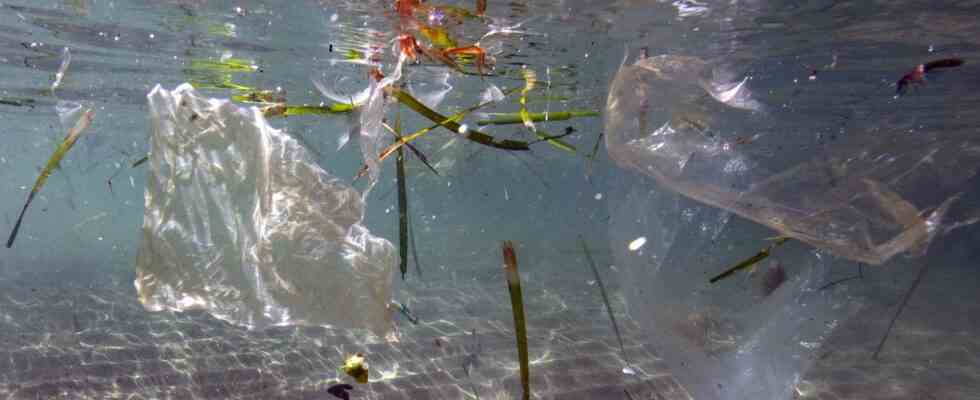Status: 07/02/2022 05:15 a.m
For five days, the world’s oceans, their condition and their protection were the focus of a conference in Lisbon. In the final declaration, “collective failure” is named and more ambition in the search for solutions is called for.
In the beginning there were strong words: UN Secretary General Antonio Guterres spoke of an emergency in the seas, man-made problems and that humanity has a duty to solve the problems again. And climate envoy and former US Secretary of State John Kerry warned: “If we don’t find answers, this will all be rhetoric, these meetings will go to the dustbin of history because future generations will ask us, ‘What the hell did you do? Why didn’t you do it? Did you do the work?'”
There were already clear goals before the conference: by 2030, 30 percent of the seas should be protected, marine and coastal ecosystems should be protected, and the fishing industry should become more sustainable.
Manuel Barange, director of fisheries and aquaculture at the Food and Agriculture Organization, also reported progress: “The proportion of aquaculture is growing on every continent, while the proportion not intended for direct human consumption is declining, making food production more efficient is – that’s already a blue transformation.”
Ban on deep-sea mining
A major concern of many NGOs is a comprehensive ban on deep-sea mining. Large international corporations rejected this at the first ocean conference in New York five years ago. It is about valuable raw materials such as manganese, nickel, copper and rare earths.
Sean Owen of the environmental organization Deepsea Conservation argues in favor of a precautionary ban: “Underwater mining doesn’t exist yet, but it poses a huge risk to the oceans. It would make what we’ve already done worse: marine pollution, overfishing and climate change. That is a limit we should not cross. We must protect our oceans and allow them to recover.”
This is precisely where there are positive impulses, said German Environment Minister Steffi Lemke in Lisbon: French President Emmanuel Macron had called for laws against deep-sea mining during his appearance, which was a strong statement. She herself helped ensure that the G7 had already agreed on major hurdles for deep-sea mining.
Environmentalists: A missed opportunity
Nevertheless, environmental organizations see the ocean conference in Lisbon as a missed opportunity: the adopted “Lisbon Declaration” is non-binding. It was completely unclear whether announced voluntary measures would also be implemented. Greenpeace takes the same line.
The United Nations must finally adopt a binding agreement, said the organization’s Laura Meller: “A strong global seas agreement that will enable us to create a network of marine protected areas to protect at least a third of the world’s oceans by 2030.” In August in New York at the United Nations is the moment of truth.”

